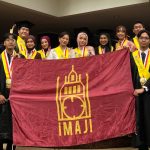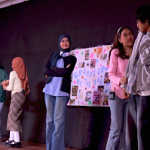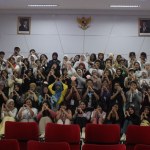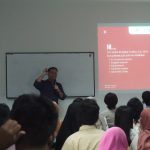Arsip:
Exchange
Studying abroad is a dream for many students including one from English Studies Program UGM, Benedicta Angie. Since childhood, she had been curious about how people live their lives abroad.
One of the English Studies Program students, Azizah Putri Chandra Kusuma, spent a whole semester at Siena, Italy as an IISMA awardee. IISMA is a study abroad exchange program held by the Ministry of Education, […].
A year prior to his enrolment to IISMA, Elkholy was already certain that he wanted to participate in this program. In order to succeed, this English Literature student of Batch 2021 had prepared himself by […].
Ayfa Hurin Ien, a student from English Studies Program, is currently participating in a Lithuanian Language and Culture Winter Course. This is a month-long program designed for international students to learn Lithuanian at various level […].
Waking up in a room with a view of yellowing and reddening trees would have been my wildest dream until a year ago. Every new thing that I have experienced from last year’s September until […].
Interested to expand your knowledge about culture? We are pleased to offer English Department students to be a part of “Cross Cultural Exchange Program” with National University Of Singapore.
At the end of 2023, “Harmony in Diversity: A Journey from Jogja to Singapore, and Back” emerged as an inspiring collaborative work between the lecturers and students of the English Department, Faculty of Cultural Sciences […].
Universitas Gadjah Mada (UGM) is further solidifying its reputation as a World-Class University. This commitment is evident through its ongoing cross-cultural exchange program, operating under the U-to-U scheme, between Universitas Gadjah Mada and the National […].
UGM X NUS On Monday, September 12, UGM hosted its day one virtual exchange meeting with NUS students in 2022. This is the eighth year since the commencement of this exchange program.
About TF-NUS LEaRN TF-NUS LEaRN is a three-week summer program sponsored by Temasek Foundation at National University of Singapore aiming to nurture the next generation of Asian Leaders by providing opportunities for cultural exchange, networking, […].








